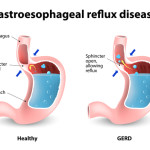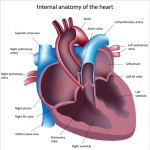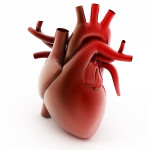Heartburn or gastro-esophageal reflux disease (GERD) is a very common symptom for patients with pulmonary hypertension. Patients may experience chest tightness, burning, pressure or even cough and hoarseness. Often symptoms are worse after eating certain foods or lying down at night. What Causes Heartburn in Pulmonary Hypertension Patients? A quick review of the anatomy of … [Read more...]
Echocardiography and Pulmonary Arterial Hypertension: A Detailed Look
An echocardiogram (or echo) is an ultrasound-based test that can tell us a great deal about your heart. By bouncing and receiving ultrasound waves off your heart and adjacent structures, we can generate images of your heart. We can learn about the size and function of the right and left side of your heart and the valves. We can estimate pressures but not directly measure … [Read more...]
Exercise and Pulmonary Arterial Hypertension
A common question that I am asked by patients is how much activity can they safely perform. What type of exercise is safe? Should patients exercise? In the past, patients with heart and lung disease were advised to avoid exercise. We now know much better! Not only does exercise improve your stamina, it also improves you muscle strength and sense of well-being. During … [Read more...]
7 Steps to Take for Elevated Pulmonary Artery Pressure
At PulmonaryHypertensionRN.com, our mission is to provide accurate and easy to use information about pulmonary hypertension. We recently received a question from a reader that made me reflect on how scary getting a diagnosis of pulmonary hypertension can be for patients and their families. The reader asked what they should do after they were told that their echo-estimated … [Read more...]
Pulmonary Embolism and Pulmonary Hypertension
A recent reader of PulmonaryHypertensionRN.com wrote in with an excellent question that I suspect is on many patients minds. Pulmonary embolism (a blood clot in your lung) is a very common medical problem. Occasionally this can lead to pulmonary hypertension in a few percent of patients. The larger the blood clot the greater the likelihood that if you had an echocardiogram … [Read more...]




